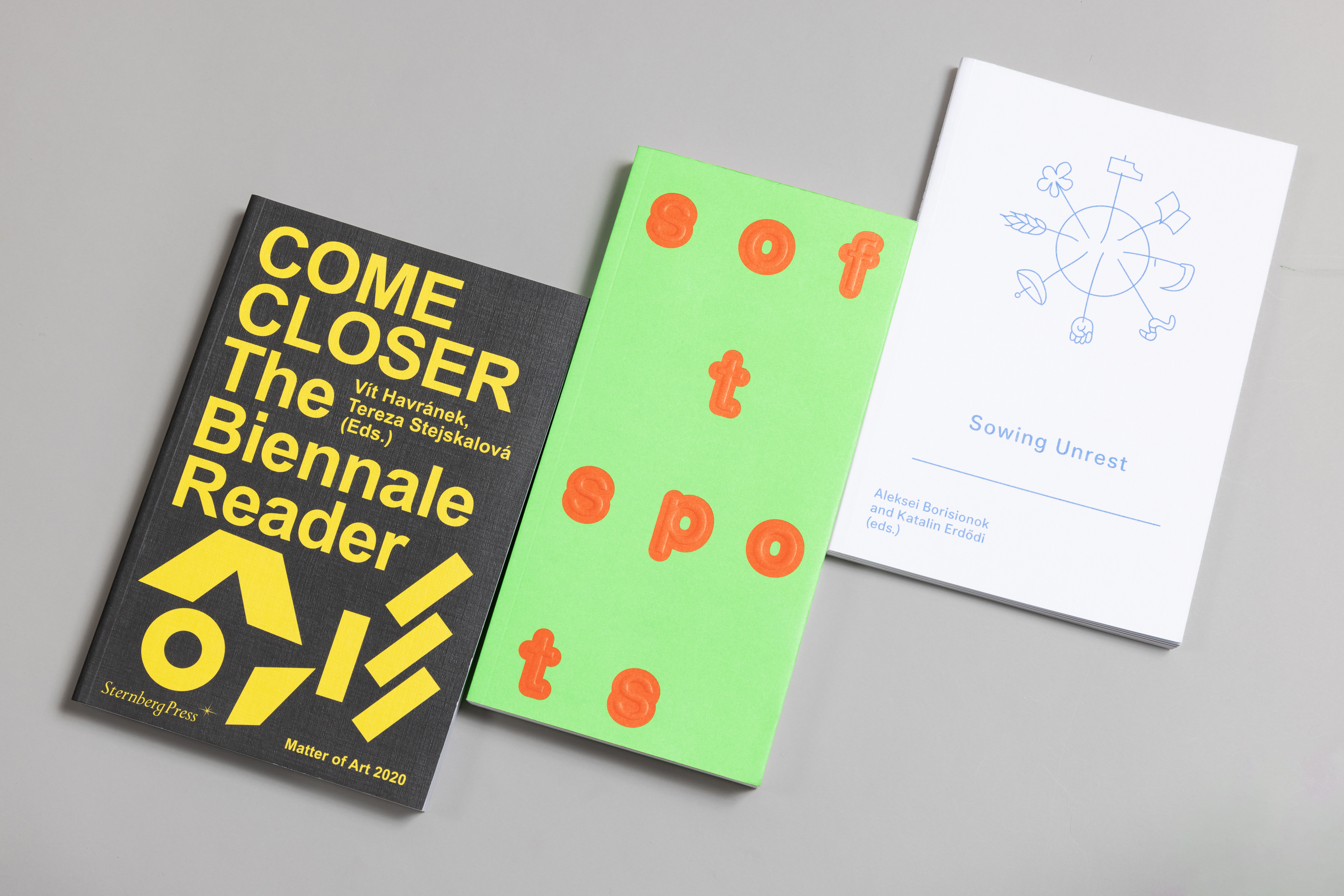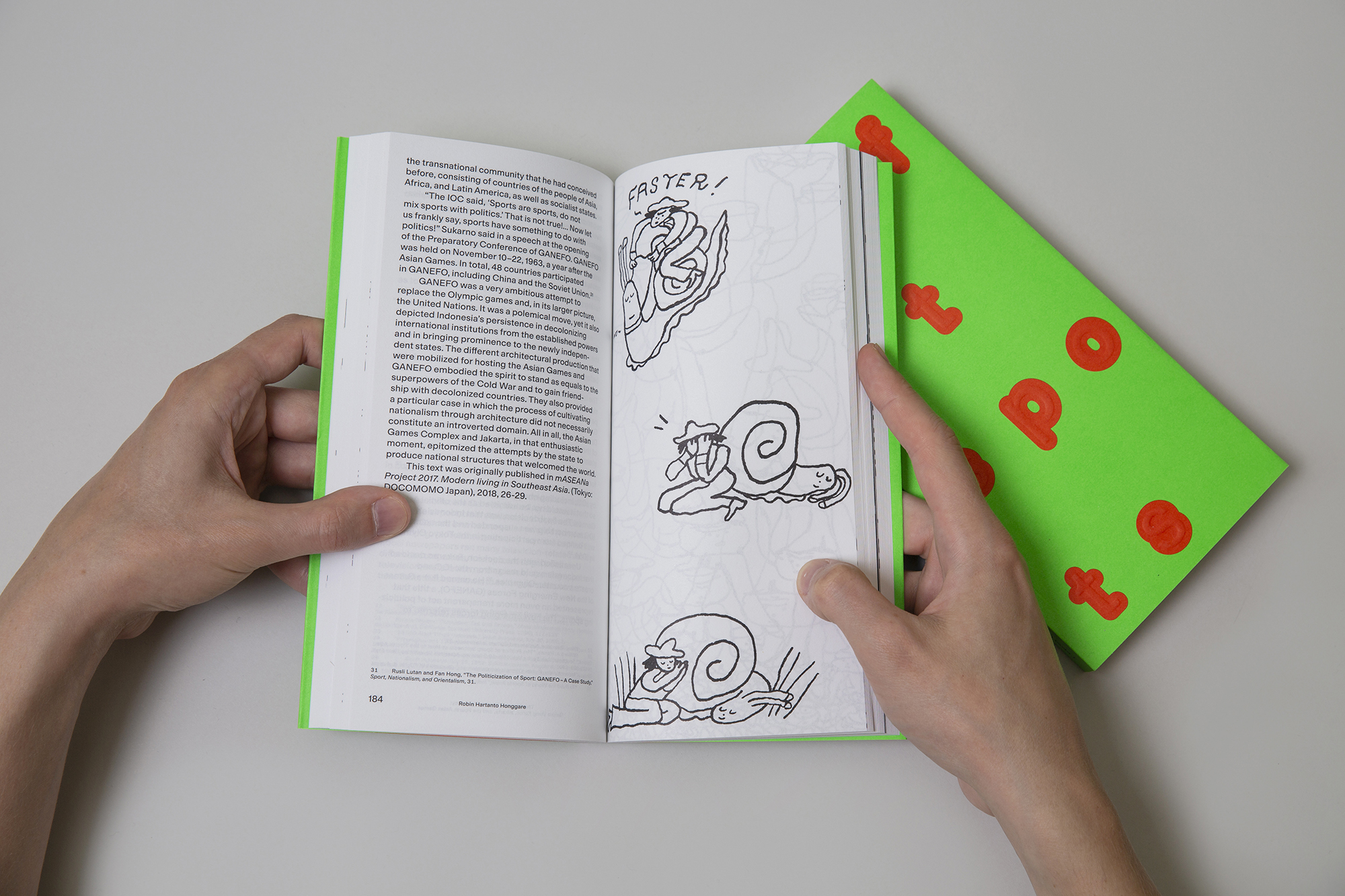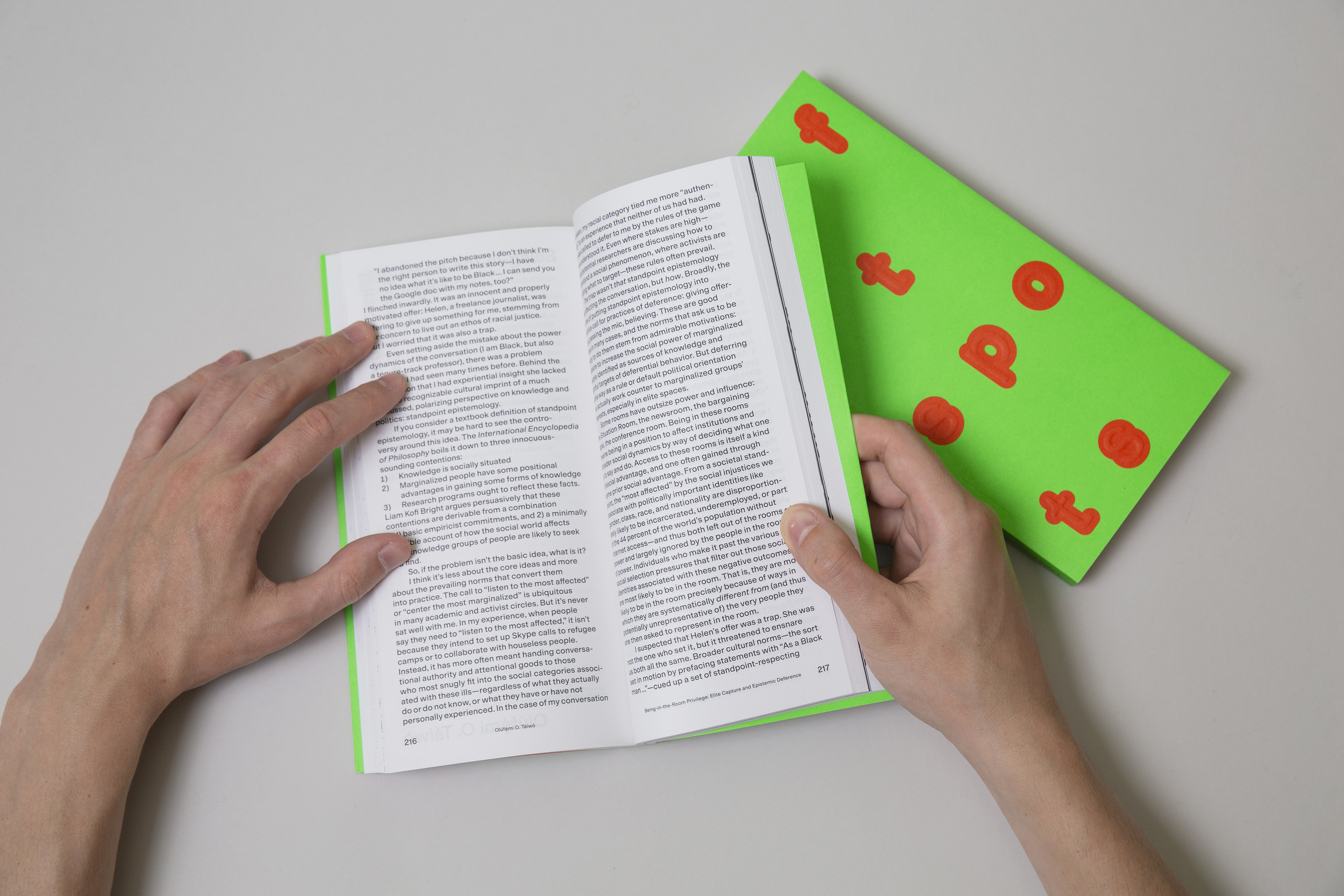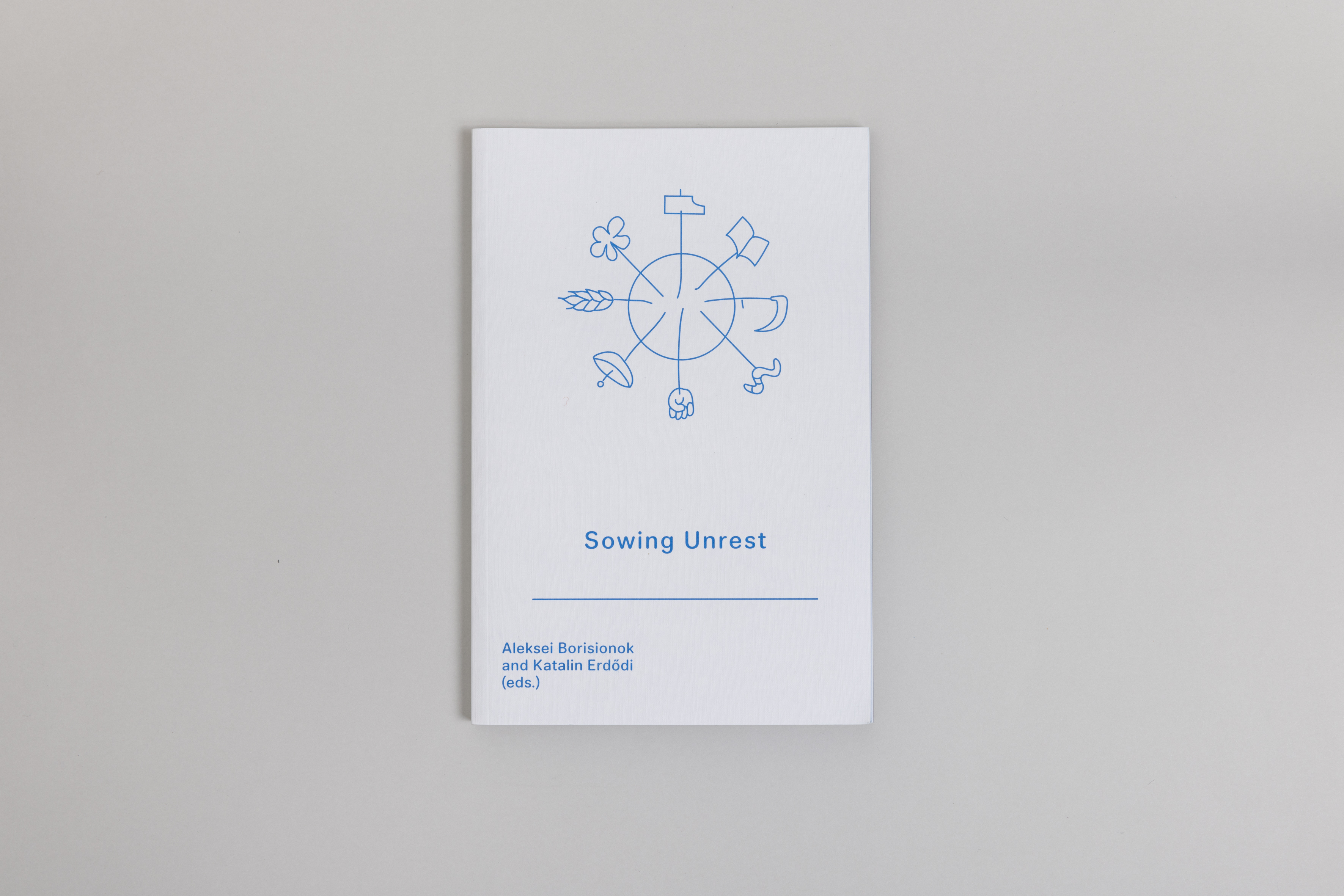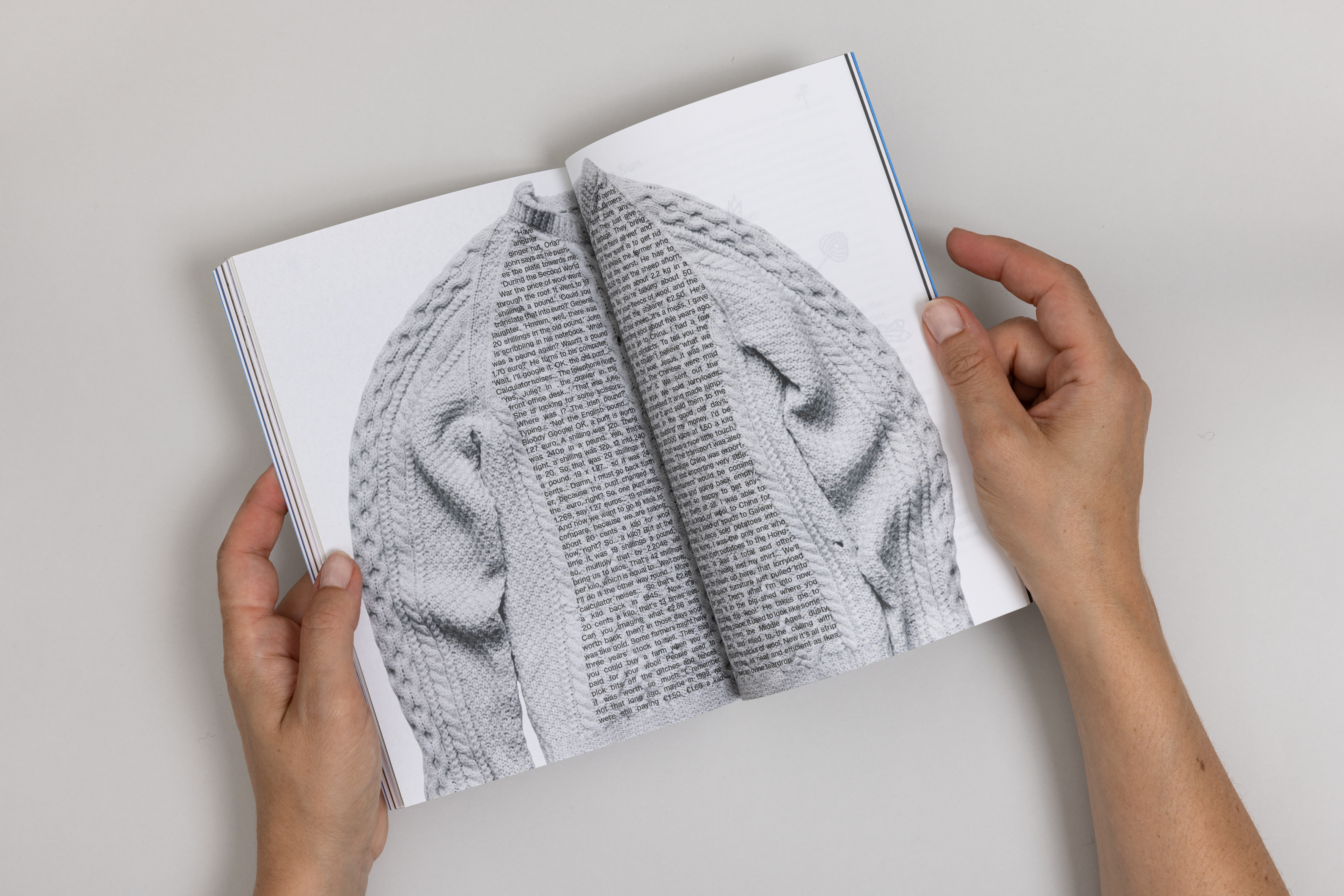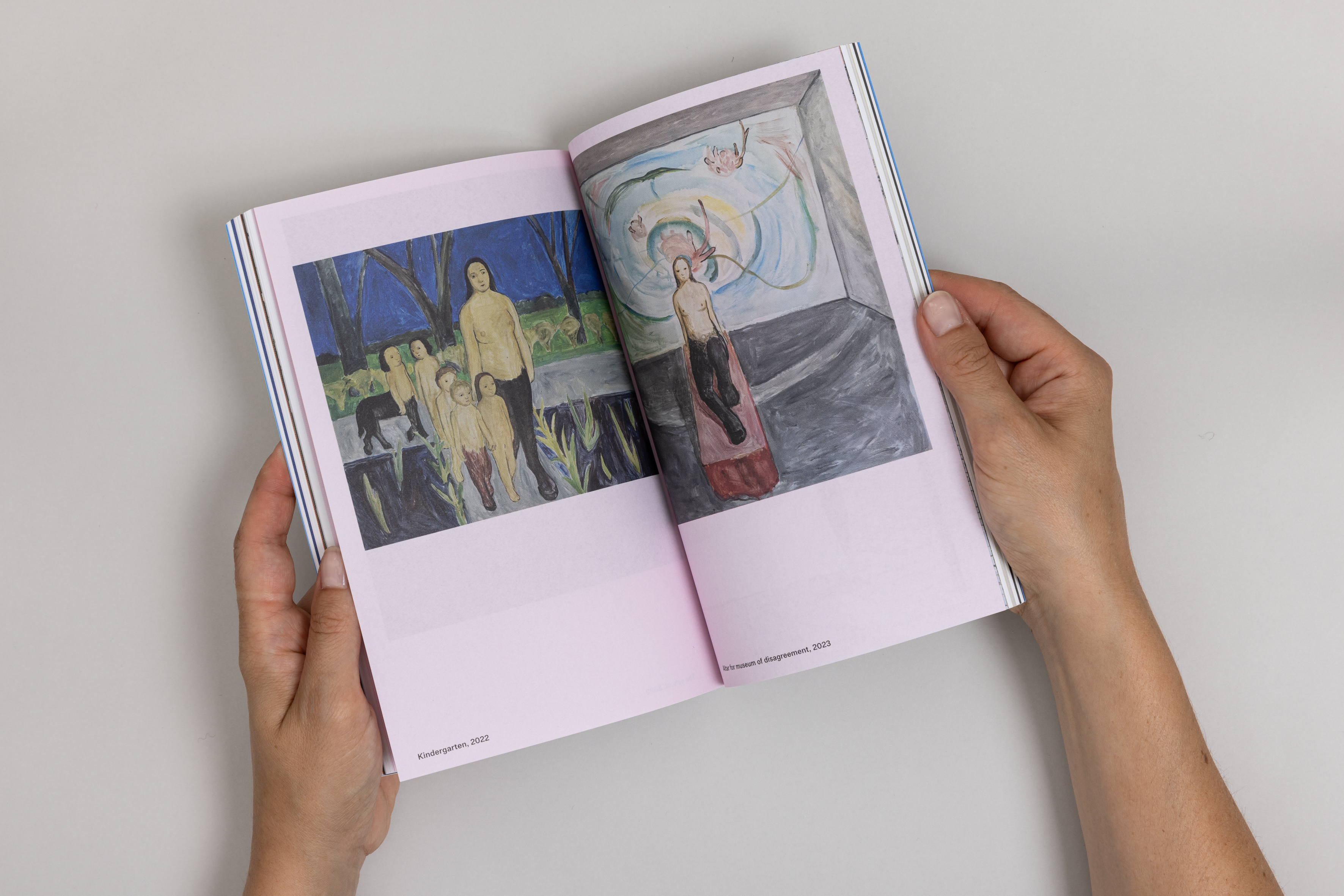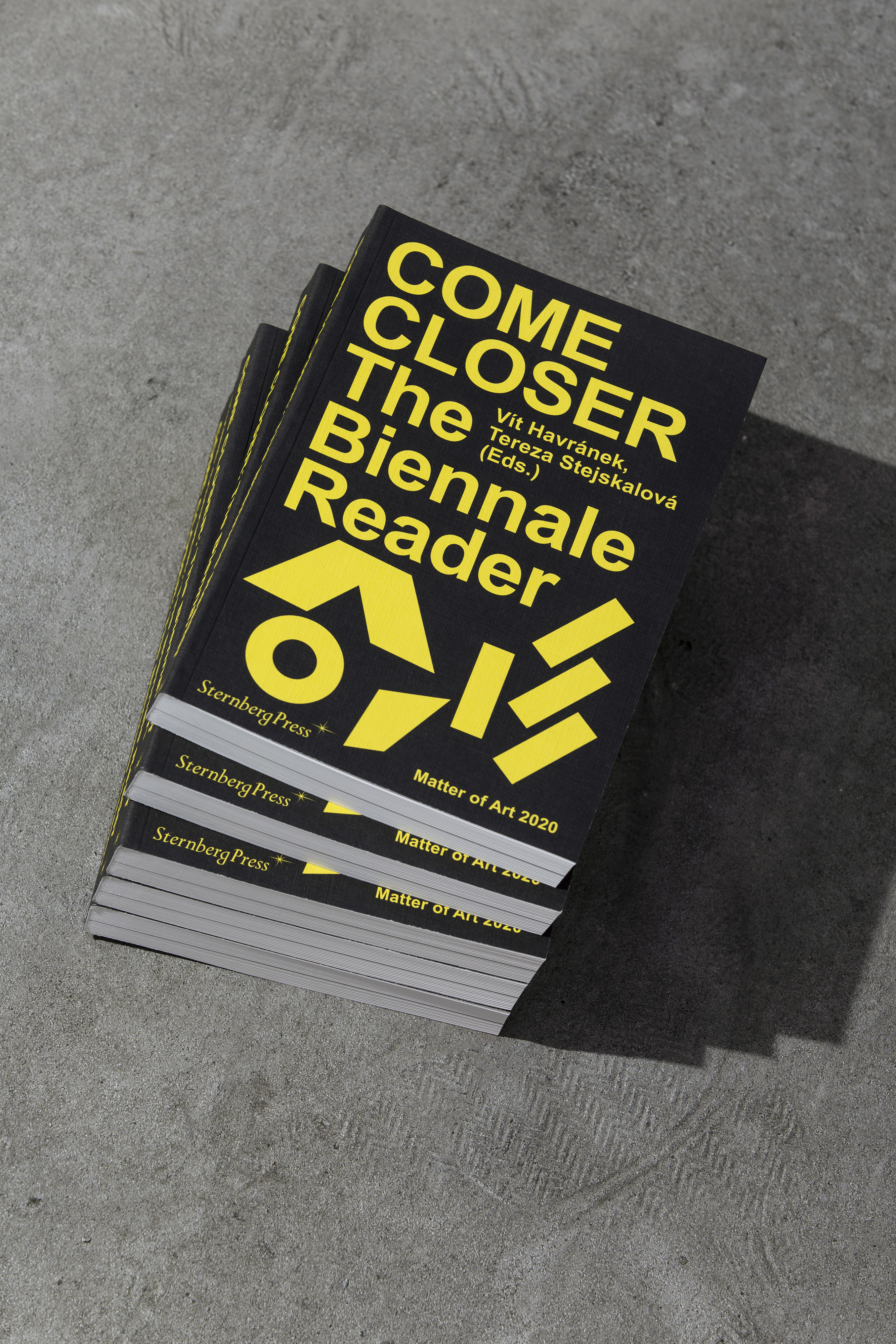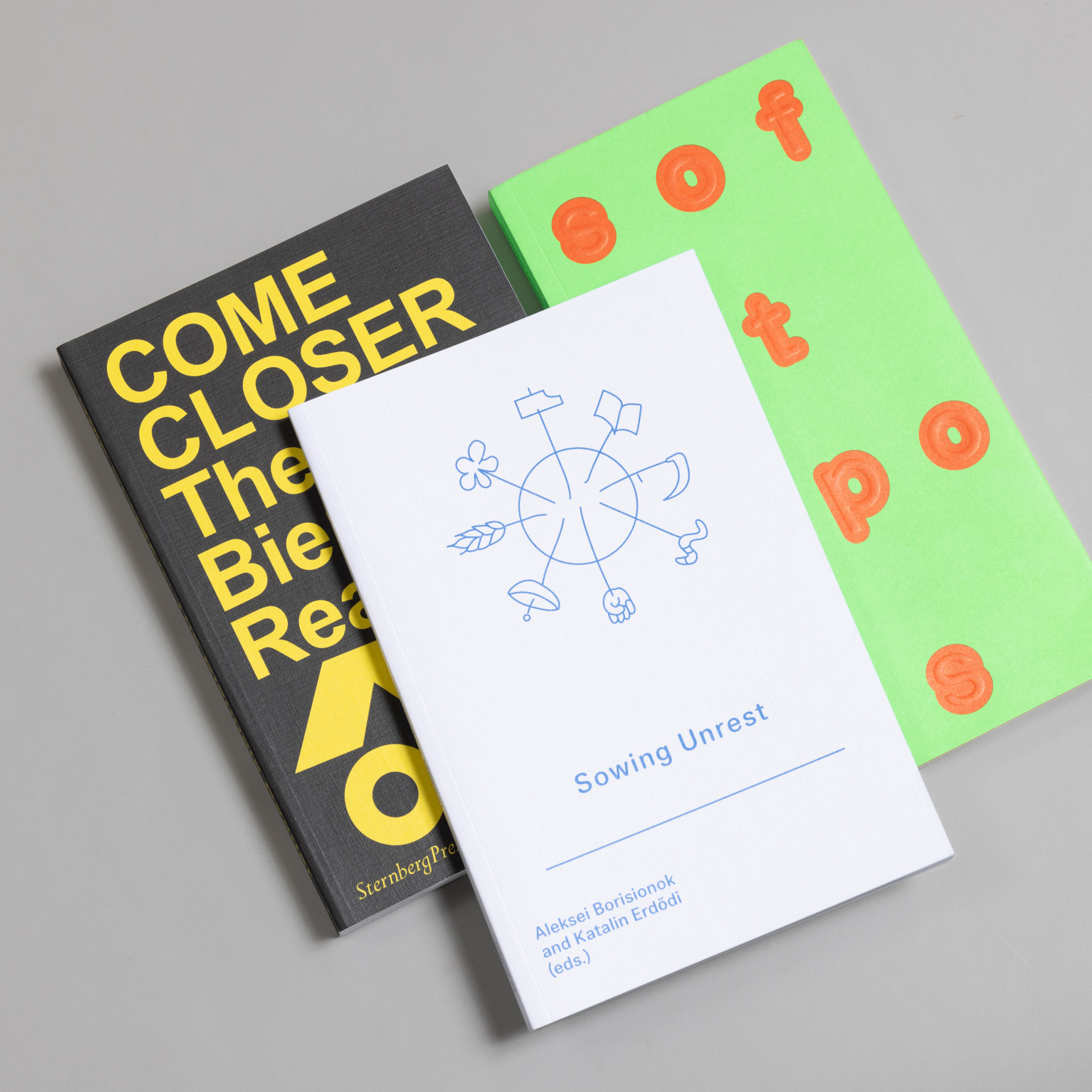
Biennale Reader Set in English – 3 Books
English editions
Tereza Stejskalová, Vít Havránek (eds.) – Come Closer, 2020
Rado Ištok, Piotr Sikora, Renan Laru-an, Tereza Stejskalová (eds.) – Soft Spots, 2022
Aleksei Borisionok & Katalin Erdődi (eds.) – Sowing Unrest, 2024
Three volumes of theoretical and artistic texts published for the Biennale Matter of Art 2020, 2022, and 2024. All three readers for a discounted price.
The book Come Closer was published on the occasion of the first Biennale Matter of Art and presents various perspectives on class, race, and gender differences as they manifest themselves in the specific contexts of post-socialist states—in their histories as well as in the present day.
The focus is on art as a specific language that can mediate various experiences, while centering on emotions, intimacy, and care. This reader includes republished texts as well as newly commissioned contributions from both emerging and established artists, social and political scientists, and art historians from Eastern Europe, Asia, and the United States. The anthology was edited by Tereza Stejskalová and Vít Havránek, curators of the Biennale Matter of Art 2020.
Authors: Jérôme Bazin, Heather Berg, Pavel Berky, Anna Daučíková, Patrick D. Flores, Isabela Grosseová, Vít Havránek, Marie Iljašenko, Rado Ištok, Barbora Kleinhamplová, Eva Koťátková, Kateřina Lišková, Ewa Majewska, Tuan Mami, Alice Nikitinová, Alma Lily Rayner, Sarah Sharma, Jiří Skála, Adéla Souralová, Edita Stejskalová, Tereza Stejskalová, Matěj Spurný, Ovidiu Tichindeleanu, Simone Wille
Soft Spots brings together new as well as existing essays, interviews, short stories, and reports from different fields and geographies on various issues, mapping the space of Eastern Europe and beyond with a special emphasis on beyond. The point of departure is exhaustion—mental exhaustion, cultural exhaustion, material and economic exhaustion—and the ensuing strategic position of weakness or softness. The texts address a variety of topics: racialization, decolonization of museums and museology, the intricacies of cultural exchange, and the implications of radical modernist traditions of thought and aesthetics. They are accompanied by artistic interventions by Dorota Brázdovičová, Markéta Soukupová, and Tarek Lakhrissi. Also included are excerpts from Pižmo, an independent magazine for strengthening cultural diversity published by the SAM83 gallery collective in Česká Bříza.
Authors:
Hamja Ahsan, Giulia Loi, Gwendolyn Albert, Dorota Brázdovičová, Amanda Carneiro, Jana Krejcarová-Černá, Brenda Villanueva Fajardo, Robert Gabris, Jana Horváthová, Ábel Ravasz, Ramon Guillermo, Robin Hartanto Honggare, Filip Herza, Brigitta Isabella, Tarek Lakhrissi, Dorota Jagoda Michalska, Anna Remešová, Sráč Sam, Františka Schormová, Markéta Soukupová, Olúfẹ́mi O. Táíwò, Zai Xu
Sowing Unrest was published on the occasion of the third Biennale Matter of Art. With newly commissioned as well as republished essays, conversations, poems, and artistic contributions, it grafts the two curatorial threads of the biennale—Aleksei Borisionok’s interest in workers’ movements and Katalin Erdődi’s focus on rural change—in order to talk about the past, present, and future of political movements across the rural–urban divide. How do people in rural areas organize to effect change in society? How can people strike and achieve their political demands? How can care be organized as a basis for solidarity and mutual aid? We are curious about the various ways in which unrest—a state of dissatisfaction, disturbance, and agitation—can grow in unexpected places.
Texts: Kateryna Aliinyk, Aleksei Borisionok, Ramona Duminicioiu, Katalin Erdődi, Fernando García-Dory, Kateřina Kolářová, Tomasz Rakowski, Marta Romankiv, Galina Rymbu, Olia Sosnovskaya, Alex Toshkov, Tomáš Uhnák, Maja Vusilović
Visual Essays: Orla Barry, eeefff, Katheryna Lysovenko, Tamás Kaszás
